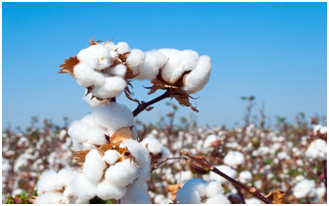

Context
After the clearance for GM-Mustard crops for field trials, the Genetic Engineering Appraisal Committee (GEAC) is going to recommend an ‘environmental release’ of genetically modified (GM) cotton.
|
GEAC is a body under the Ministry of Environment, Forest and Climate Change that appraises GM products for their testing and commercialization (environmental release). |
Background
- Nearly two decades ago, a genetically modified type of cotton, known as Bt cotton, was introduced to India to reduce farmers’ insecticide use.
- Though the effects of Bt cotton on farmers’ yield vary across Indian states, most states show a decrease in insecticide use since the introduction of Bt cotton.
- A reduction in insecticide use may be beneficial for farmers’ health and the environment by reducing pollutants.

About
|
About BG-II RRF cotton:
|
Recent GM-Cotton alterations:
- A German multinational company ‘Bayer AG’is going to introduce a modification in cotton plants that will allow farmers to spray the herbicide ‘glyphosate’.
- The transgenic cotton — Bollgard II Roundup Ready Flex (BG-II RRF) contains three alien genes; the first two (‘cry1Ac’ and ‘cry2Ab’) are isolated from a soil bacterium,
- Bacillus thuringiensis or Bt, and coding for proteins toxic to the American bollworm, spotted bollworm, and tobacco caterpillar insect pests.
- The third gene, ‘cp4-epsps’, is sourced from another soil bacterium, Agrobacterium tumafaciens.
Significance:
- Its incorporation into cotton makes the crop “tolerant”to glyphosate.
- This herbicide cannot be applied on normal cotton, as the chemical does not distinguish between the crops and weeds.


